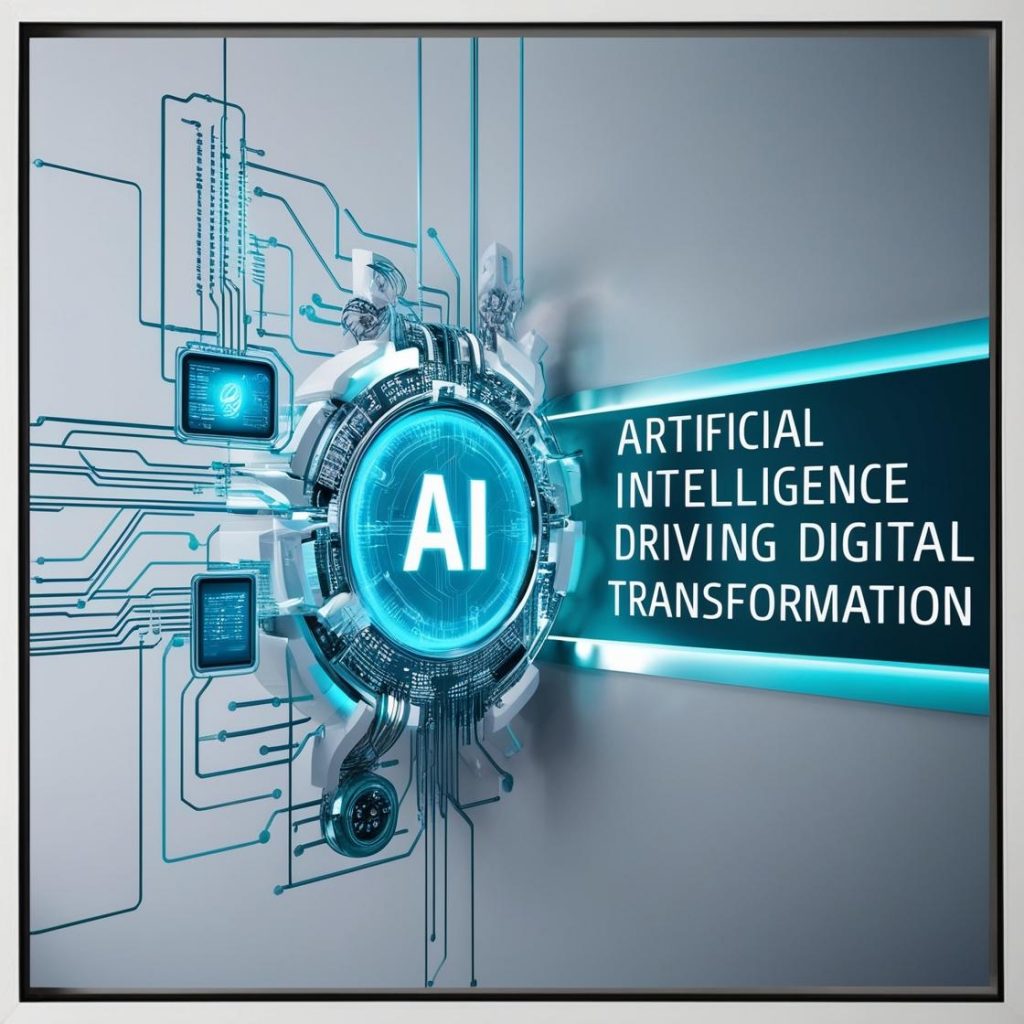
Artificial Intelligence and its Role in Digital Transformation
Digital transformation has changed almost every area of our lives and work in recent years. Companies, governments and societies are faced with the challenge of adapting to a world that is increasingly shaped by technology. One of the driving forces behind this change is artificial intelligence (AI). But what role does AI play in digital transformation and how will it influence our future?
AI: The Engine of Digital Transformation
Artificial intelligence is much more than a trend. It has established itself as a key technology that helps companies automate processes, use data more efficiently and create personalized experiences.
One example is the automation of repetitive tasks by AI-powered systems. This allows companies to free up resources and focus on more strategically important activities. At the same time, AI algorithms in areas such as data analysis provide deeper insights into customer behavior, market trends and operational efficiency.
Applications of AI in digital transformation
The possible uses of artificial intelligence are diverse. Some of the key areas of application are:
- Improve customer experience
AI-powered chatbots and virtual assistants are revolutionizing the way companies interact with their customers, providing fast, 24/7 support and enabling personalized recommendations. - Smart Manufacturing
In industry, AI ensures optimized production processes. With predictive maintenance, machines can be proactively maintained before failures occur, saving time and money. - Medical Innovations
AI supports doctors in diagnosing diseases, developing new therapies and personalized medicine. Systems such as deep learning analyze medical image data faster and more precisely than traditional methods. - More efficient logistics
In the field of logistics, AI helps to optimize supply chains, plan routes more efficiently and predict demand better. This leads to lower costs and more sustainable use of resources.
Challenges and ethical questions
Despite all the advantages, the use of AI also brings challenges. Data security, data protection and the risk of discrimination due to faulty algorithms are important issues. It is crucial to design AI systems in a transparent, fair and responsible manner.
Automation also raises questions about the future of work. While AI is creating new jobs, traditional professional fields are being transformed or made redundant. Society is faced with the task of preparing for these changes, for example through training and continuing education programs.
The Future of Digital Transformation with AI
Artificial intelligence will continue to play a central role in digital transformation. Technologies such as generative AI, machine learning and natural language processing will continue to evolve and open up new opportunities. Companies that use AI strategically have the chance to not only remain competitive but also drive innovation.
Digital transformation is a marathon, not a sprint. AI is the most important companion that helps companies master the challenges of the modern world while shaping a sustainable, technology-based future.
Conclusion:
Artificial intelligence is not just a tool, but a transformative force that is changing the way we live and work for the long term. Its importance in digital transformation will continue to grow – a development that brings with it both opportunities and responsibilities.

